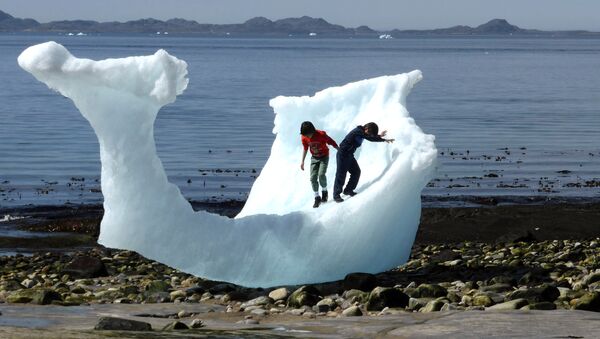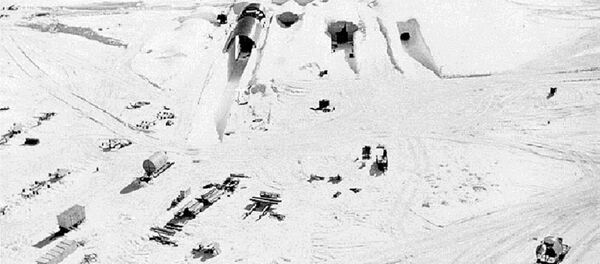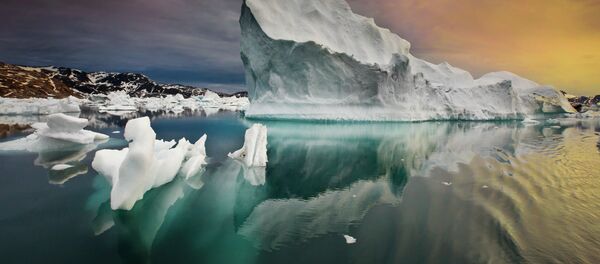Qujaukitsoq's outburst was largely fueled by the recent debate about Denmark's shady dealings with the US military in the past. The US Armed Forces have been operating the Thule Air Base in northwestern Greenland since 1943, which, according to Qujaukitsoq, has not brought Greenland anything but grief, whereas Denmark has been strengthening its NATO stance at islanders' expense.
"For 75 years, the Americans' presence has been nothing but trouble, nothing but environmental pollution, and it has created a crisis of trust between Greenland and Denmark," Qujaukitsoq said, citing accumulated frustration and powerlessness.
If Greenland isn't on your #bucketlist do me a favour, go add it right now! #greenlandpioneer @ilovegreenland #colourfulnuuk pic.twitter.com/0lZhlHgVuk
— Kristen Sarah ✈ (@HTGlobe) December 10, 2016
In October, the Greenlandic government created a new department for independence and ruled that the US and Denmark should renegotiate the controversial Thule deal. Signaling that he won't take any nonsense, Qujaukitsoq even met with Nato Secretary General Jens Stoltenberg earlier this month to directly express Greenland's beefs.
In addition to past and present military issues, Greenland would like to have more weight in decision-making about its fishing industry, which accounts for 90 percent of Greenlandic exports. Nuuk would gladly break free from Danish dictate and join transnational fishing bodies like the Northwest Atlantic Fisheries Organization (NAFO) and the North East Atlantic Fisheries Commission (NEAFC).
At present, Greenland is heavily reliant on a frozen Danish subsidy of 3.2 billion DKK (roughly $500mln), which constitutes about half of its budget. Regardless of this painful fact, Qujaukitsoq argued that Greenland would be ready to "stand its ground" given full control of its natural resources.
"[Copenhagen's] arrogance is devastating for our relationships in the realm," Qujaukitsoq told Politiken, claiming that Denmark simply does not listen to Greenland's concerns.
The idea of Greenland's independence may lead to substantial loss of territories for Denmark, as well as undermine its Arctic claims. In September 2016, Denmark and Greenland presented a joint claim to the continental shelf off the coast of Greenland for the Commission on the Limits of the Continental Shelf (CLCS) at the United Nations.
#Nuuk, #Greenland (#Нуук, #Гренландия) pic.twitter.com/ZaHXAnB2ko
— 🗺 BestWanderlust (@best_wanderlust) December 11, 2016
The Kingdom of Denmark constitutes Denmark proper and the two overseas constituent countries, the Faroe Islands (population 50,000) and Greenland (population 55,000), which achieved home rule in 1948 and 1979. In 2008, the people of Greenland passed a referendum supporting greater autonomy. Greenland's population is majority Inuit, whose ancestors migrated from the Canadian mainland. In 2009, Greenlandic became the sole official language of the island, despite the fact that over 10 percent of its population are of Danish descent. At the same time, Greenland remains one of the world's most sparsely populated nations, troubled by alcoholism, domestic violence and an exceptionally high suicide rate. Furthermore, potential mining projects on the vast island are hampered by an almost non-existent infrastructure and a harsh climate.
Heute berichten wir aus #Grönlands #Hauptstadt #Nuuk! #Reisebericht #Kreuzfaht #AIDA… https://t.co/pmKwMm3ndd pic.twitter.com/zORZFZLbz7
— FT Kreuzfahrtspot (@kreuzfahrtspot) November 30, 2016





